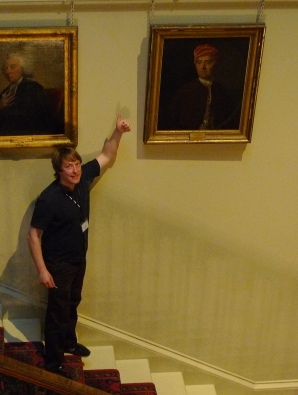I attended the OAI7 Workshop in Geneva last month, and now I have a blog I thought I would report back on it. I’ve picked out the most personally interesting or notable events below, but there were plenty of other good sessions as well as these. The event was also notable for the rather good social engagements, including a reception at the Globe, CERN.
Advocacy for Open Access within HE institutions (Monica Hammes, University of Pretoria)
Monica Hammes talked about how to get Open Access (OA) onto the agenda of university management. She began with the premise that “OA is obvious, so why hasn’t it become the norm?” She identified the specificity of universities, and their internal structures, stakeholders and politics as the explanation for this. Universities are “places of many agendas” when it comes to OA, including those of:
- Researchers
- University management
- Research leaders
- Readers/ repository end users
- Library/ IT services
- Funders
In this environment, an OA mandate focuses attention on the repository and associated services, but is not a “silver bullet” which automatically makes OA occur at institutional level. There is a need to keep OA on the agenda of senior university management, but this can be difficult when senior management has so many other demands and concerns. Ms Hammes identified the Research Office as a key ally in keeping OA on the university agenda, a position here at City we are fortunate to be in!
Embedding repository services and the “invisible repository” (William Nixon, University of Glasgow)
William Nixon’s presentation focussed on the ways repository services can be embedded in the broader work of the university in which it is based. The aim is to seamlessly integrate the repository with other services, in such a way that the repository becomes “invisible”, in the sense that it is so well integrated with other services that its clients (both academic colleagues and others) no longer even notice its presence. He noted a few points which pertain to us at City particularly:
- Glasgow is attempting to get rid of the word “repository” from all of its documentation, on the basis that the term is not widely understood by academic colleagues.
- Use of the term “mandate” when talking about OA is also perhaps unhelpful: Glasgow have used the phrase “publications policy”, since there are many policies which university members are expected to adhere to. Glasgow’s policy was created and implemented in close collaboration with the Pro Vice Chancellor for Research.
- The cultural aspect of repository integration is very important, but must be underpinned by proper integration of the Current Research Information System (CRIS) and the repository, and the ability to inter-operate repository and other systems’ data. Silos of data and other information are things of the past!
- There is a strong element of reputational management in handling research information; academic colleagues are understandably sensitive about the correct and accurate management of this information.
Mendeley: the elephant in the repository room (Victor Henning, Mendeley)
Mendeley’s founder, Victor Henning, talked about the inexorable rise of Mendeley, the research management software tool. He actually gave the exact same talk twice, which was rather cheeky, but it did highlight some very interesting points about Mendeley:
- The service’s startling levels of growth- some 90 million papers have been uploaded to Mendeley in the last 18 months!
- Its ambivalent attitude towards OA. Mendeley is agnostic toward the content it allows its users to upload to the service, and it would seem that more often than not these are the “published” versions of papers. There is no emphasis on provision of OA material, though as Southampton’s Les Carr has shown, there are significant amounts of OA content and sharing of scholarly material within the service.
- Its “wild west” approach to copyright. Mendeley allows the sharing of scholarly articles within groups, meaning that uploading a PDF to the service is likely to infringe that article’s copyright. Henning’s response, when pressed, was that infringement of copyright was the responsibility of end users, not the service. This is a large topic, and one that can’t be examined in detail here, but I think it unlikely that repositories could take such an attitude towards the material with which it deals.
- The emphasis on the “ego driven” nature of research sharing. In Henning’s view you have to demonstrate to researchers what’s in it for them before they will share research- to expect this to happen for altruistic reasons is unrealistic.
Henning’s talk was very thought provoking. Mendeley is in many ways a fantastic service, but its ambiguity on questions of OA and copyright pose some challenges to the OA community. It is positive, though, that Mendeley is engaging with OA events such as OAI7.
SHERPA CRIS plug-in tool (Peter Millington, Centre for Research Communications, University of Nottingham)
I talked to Peter Millington, a developer at SHERPA, during a break-out session. He has developed a plug-in which works with Symplectic (and should be easily switched on by Symplectic services). The plug-in runs a query against the repository holdings, and does the following within the Symplectic interface:
- Where a paper is already present in the repository, it alerts the user to that fact.
- Where a paper is not present, it runs a query for that journal title against the SHERPA RoMEO database, and returns the following results:
- If the paper in question is eligible for deposit, the plug-in tells you this, and provides a button to upload a version of the paper.
- If the paper is not eligible, a notice to that effect is displayed.
Peter’s poster can be viewed online. In my view, this could be an excellent way of fostering OA deposit to the repository.
Filed under: Events, advocacy, conference, OAI7, Open access, repositories
